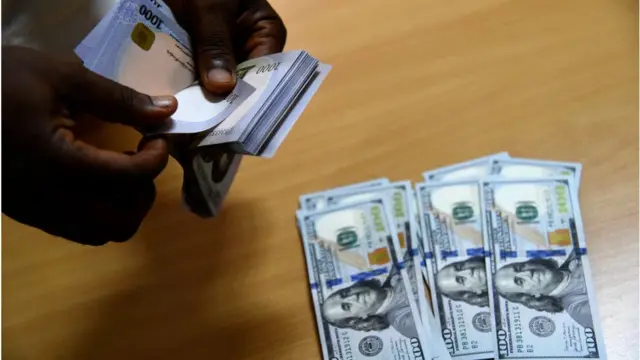
The Nigerian Naira on Monday – depreciated to N1,555 per dollar in the parallel market from N1,545 per dollar it recorded last week Friday. Similarly, the Naira depreciated to N1,577.29 per dollar in the Nigerian Autonomous Foreign Exchange Market, NAFEM.
Data from FMDQ showed that the indicative exchange rate for NAFEM rose to N1,577.29 per dollar from N1,563.8 per dollar last week Friday, indicating N13.49 depreciation for the naira.
The volume of dollars (turnover) traded on the window increased by 21.3 percent to $153.53 million from $126.5 million traded on Friday.
Consequently, the margin between the parallel market and NAFEM rates narrowed to N18.8 per dollar from N18.8 per dollar last week Friday.
Nigeria is facing its worst economic crisis in decades, with skyrocketing inflation, a national currency in free-fall and millions of people struggling to buy food. Only two years ago Africa’s biggest economy, Nigeria is projected to drop to fourth place this year.
The pain is widespread. Unions strike to protest salaries of around $20 a month. People die in stampedes, desperate for free sacks of rice. Hospitals are overrun with women wracked by spasms from calcium deficiencies.
The crisis is largely believed to be rooted in two major changes implemented by a president elected 14 months ago: the partial removal of fuel subsidies and the floating of the currency, which together have caused major price rises.
A nation of entrepreneurs, Nigeria’s more than 200 million citizens are skilled at managing in tough circumstances, without the services states usually provide. They generate their own electricity and source their own water. They take up arms and defend their communities when the armed forces cannot. They negotiate with armed kidnappers when family members are abducted.
But right now, their resourcefulness is being stretched to the limit.
KOIKI Media bringing the world 🌎 closer to your door step
